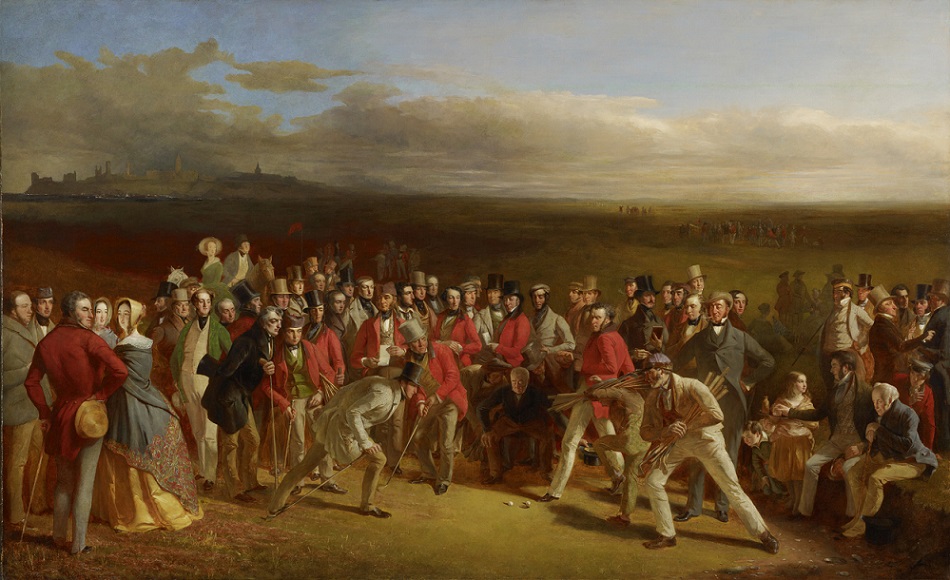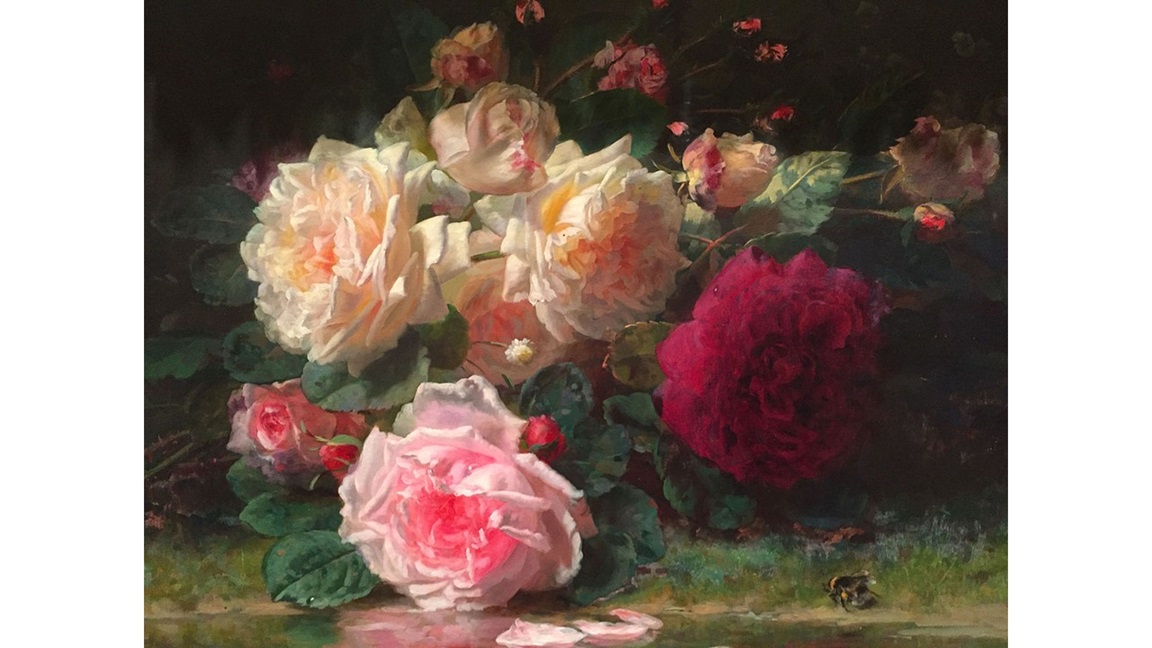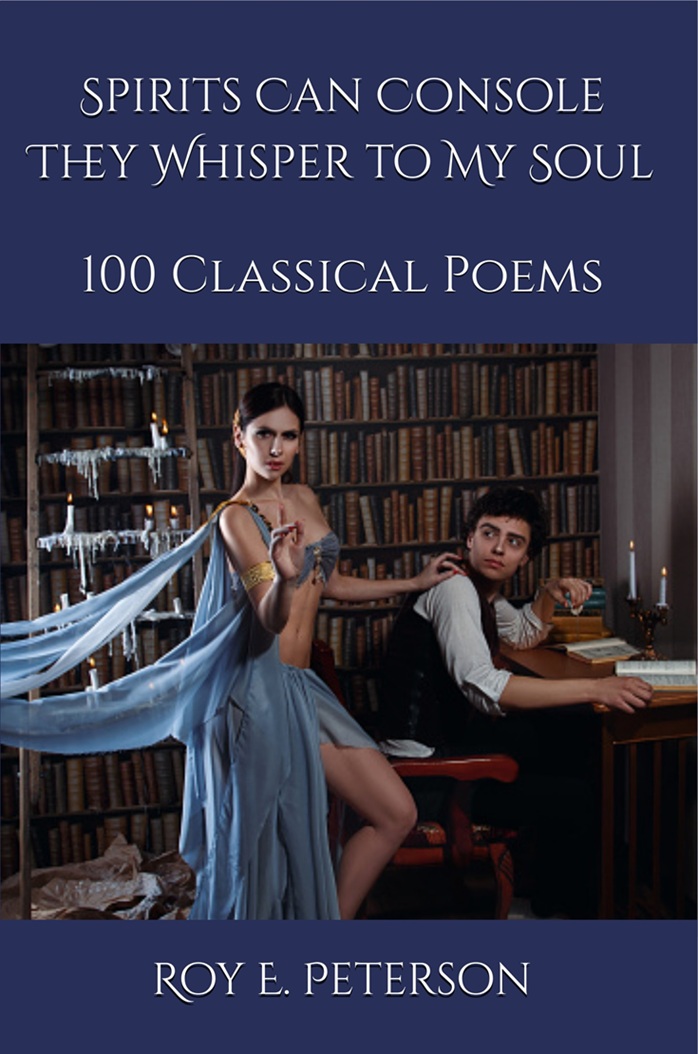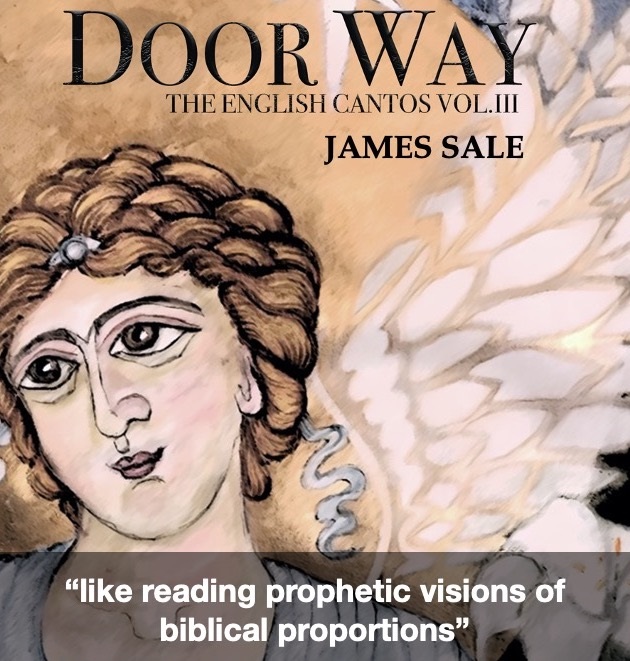It comes as no surprise that “golf”
When backward spelled is “flog.”
For it’s a sport so hard to solve
Leaves many in a fog.
On surface it so simple seems –
Just hit a little ball.
Unhindered by opposing teams,
It doesn’t move at all.
But if when striking you should flinch
And fail to be precise,
Mishit by even half an inch,
Then top, gouge, hook or slice.
For each success, make errors more.
Ends mostly in defeat.
Yet gladly any pain ignore,
Self-flogging you repeat.
Raymond Gallucci is a retired Professional Engineer who has been writing poetry since 1990.

















Quite a whimsical bit of verse this, and might have been improved only very slightly if golf had rhymed with solve in the first stanza or Rolf Harris had managed a game or two while serving time. But still a pleasant enough and amusing little piece.
Or maybe Dolph Lundgren. While I always try for perfect rhyme, compromises become necessary.
“F” is a surd (an unvoiced consonant) of “V,” just as “T” is for “D,” “P” for “B,” “C (or “K”) for (hard) “G,” and so forth. So for all practical purposes word endings such as these will serve as elements of a perfect rhyme. Of course, the verb in the primary rhyming syllable needs to be pretty damn close to its mate as well. If you buy this, then “good” should rhyme with “foot,” and “suck” with “mug.” There are many delicious examples of this kind of thing in the canon, and I would like someday to write the definitive article on the subject, but for now I simply wish to uphold Mr. Gallucci’s choice of words.
Thanks for you insights. As I previously responded, I try for perfect rhyme, but usually fall short. So if I can get close, that usually suffices.
I enjoyed it! I recommended it!
I might have titled it: Golfing for Duffers.
I tried golf once. Used muscles I didn’t even know I had, and was sore for about three days. Such a little ball. Such a narrow stick. Lifting weights was easier. This is a cute little ditty, it brought to mind thoughts of Houseman. I’m with C. B. on the rhymes all seem acceptable to me. However using inversion to achieve meter, or rhyme is too forced for my taste. There are a couple of questions on clarity in my mind. Both S2L4, and S4L2 read a little awkward to me. As a whole though, it is a fun little ballad rhythm.
Glad you enjoyed it. I consider maintaining rhyme and rhythm paramount, so don’t mind word inversion if I find it necessary for both. I recognize it’s not to everyone’s taste, but I write a lot of poems about a lot of topics (I’ve only been sending The Society my humor ones, since that is the only Society category that my poems fit) and would rather go on to a new topic than belabor any one poem too much.
I consider the two assertions you made above:
“I consider maintaining rhyme and rhythm paramount” . . and “While I always try for perfect rhyme, compromises become necessary” . . to be contradictory; it’s gotta be one or the other.
Also, I personally feel that poetry is one thing over which compromises should never be made; and over which compromises can never be “necessary”. There was no “necessity” in the above poem to commit the anomaly of trying to rhyme ‘golf’ and ‘solve’.
You evidently decided: “Well, no word rhymes true with ‘golf’, so I’m gonna have to compromise”. I personally would’ve decided: “No word rhymes true with ‘golf’, I’m not prepared to compromise . . I’ll have to try to change things so that ‘golf’ is not the end-word in that line. And I would’ve eventually come up with something like this:
It’s no surprise that ‘golf’, when spelt
From back to front, is ‘flog’.
To master golf, I’ve always felt,
Leaves most folk in a fog.
See? Instead of compromising, ‘twas just a case of placing ‘golf’ somewhere else in the line. On top of which, we (at least on this side of the pond) don’t really refer to golf as “hard to solve”; that term is normally used to describe a puzzle, a riddle or a crime. Golf would normally be described as difficult ‘to learn’; ‘to master’; ‘to get the hang of’. Thus, not only is “solve” a compromise over rhyme; it’s also a compromise over diction . . as in it’s ‘forced’.
Poetry is its own entity; we only serve it . . it’s not ours to make compromises over.
You write your poetry your way, and I’ll write it mine. Since you don’t like my poetry, why bother reading it? You have your own opinions (“it’s gotta be one or the other”), and that’s fine. I have mine (“no, it can be both”), and that’s fine too. At least some readers seem to enjoy them. Perfection is not paramount to me. I have written hundreds of poems, and I don’t pore over each one to make it perfect. I’m much more interested in moving on to another subject. What I’ve published here is the tip of an iceberg, in that the Society’s desired categories fit only my humor poems, not the multitude of other topics on which I write. Doubtless you would not like those either, since I write them the same way. I rhyme and maintain rhythm in all my poems as I deem appropriate.
How touchy are you?
I never mentioned above whether I liked or disliked your poem; if you’re paranoid enough to assume that one negative comment automatically means the commenter “doesn’t like your poetry” . . that’s your predicament. Another commenter above described the piece as “pleasant and amusing”, yet also highlighted the anomaly of ‘golf’ and ‘solve’; but you didn’t blow a fuse with him. Think about it!
As opposed to the poem itself, my comment was only in regard to your initial comments above; and how I felt that the golf/solve thing contradicted those comments.
But it must be said . . your latest comment also contains some undeniable truths: “You’ll write poetry your way” . . “Perfection is not paramount to you” . . “You don’t (won’t?) pore over each poem to make it perfect” . . “You’ll rhyme your poems as you deem appropriate”.
All of those traits can be clearly seen in one stanza of the above piece.
My “touchy” reaction stems from your series of comments from my previous entries, “Irrelephant, et al.,” which were anything but gracious or, in my opinion, constructive – I saw this one, not as an isolated comment (as I viewed the other commenter’s, ergo no “touchy” reaction), but as a continuation of that previous series of negative comments, e.g., “it’s so badly written;” “nothing short of pretentious, and has resulted in a mish-mash of lines – many senseless – thrown (or forced) together, lacking the most basic syntax . . and with not the slightest regard to the diction; nor, more importantly, the slightest regard for the reader;” “it sounded like glorified text-messages;” “after seeing your latest abomination;” “your diction is written in the same way . . as a child would write;” “four lines is all I could stomach; I saw within them all that I needed to see, they were disgusting;” “what a disgrace to our language both pieces are.” It was obvious from those that you find my poetry quite distasteful, which is, of course, your right. In retrospect, I probably would have better chosen to use “acceptable” (to me) than “necessary” in my explanation of allowing imperfect rhyme or word inversion – it is clearly a choice (mine), not a general requirement (as “necessary” mis-implied). Regarding the imperfection in “golf” and “solve,” this is far from much of a non-rhyme. Classicists such as Blake (e.g., “eye” and “symmetry”) or Coleridge (e.g., “Khan” and “ran”) imperfectly rhyme as well (and I am not comparing myself to them in any way, merely citing the presence of imperfect rhyme in some “classic” poems). And, while your rewrite of my first stanza maintained perfect rhyme, I would have gone with the imperfection of “spelled” and “felt” rather than the archaic “spelt,” which would have seemed a bit of a stretch to me to maintain perfect rhyme. With the current poetic world being inundated by “free verse,” which I presume we both agree falls short of what we consider poetically satisfactory, we should encourage anyone who makes even a modest attempt to write rhyming (even if imperfect), rhythmic poetry today, as the Society site does. So, let us agree to disagree regarding poetic philosophy and standards and move forward with our own work, encouraging others who also make an honest attempt.
There’s nothing archaic about ‘spelt’ on this side of the pond; it’s still in everyday-use . . e.g. ‘You’ve spelt it wrong’.
One kneels or one knelt; one feels or one felt; one deals or one dealt; one spells or one spelt. Standard English-Usage.
I don’t expect you to believe me when I tell you that I had no recollection of any of your previous poetry when making the above comments.. Now you mention it, I can vaguely recall a poem called “Irrelephant’ on these pages some time ago; but I had no idea that you were the author of that piece. The remembering of names has never been one of my strong-points.
There is definitely a difference in English between the US and UK (“separated by a common language”). For example, I believe “connection” is the US version and “connexion” acceptable in the UK (and I actually applaud the UK version, as it cuts out a letter). Different pronunciation of “lieutenant” is another prime example. The examples you give (deal, feel, kneel) also are long E words, vs. the short E in spell, hence the perhaps equal usage of “spelled” and “spelt” in the UK vs. the much more common “spelled” in the US, where I reside (likewise, e.g., maybe “smelled” vs. “smelt,” or “dwelled” vs. “dwelt,” more short E words; but not “shelled” vs. “shelt,” another short E word). English definitely has its peculiarities.